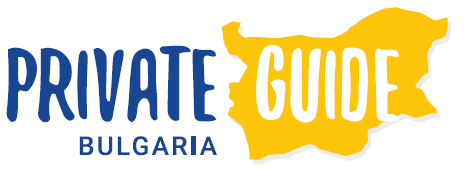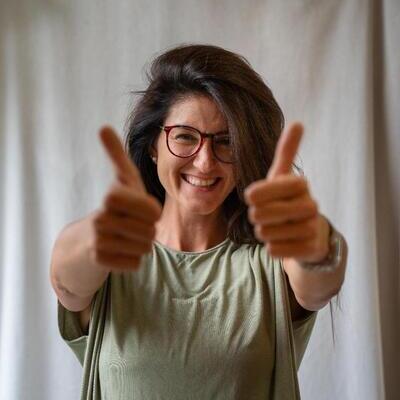Visit the Kukeri Festival Surva 2026
A magical tour to the folklore
carnival in Pernik, Bulgaria
- Join an ancient Bulgarian tradition
- Local guide who will explain all details
- Comfortable transport included
Price: Starting from 60 EUR
The Kukeri are one of the oldest and most fascinating folk rituals in Bulgaria, dating back to Thracian times. During the winter months, people across the country dress as monsters to participate in public dances and parades. The goal is to chase away evil spirits and bring prosperity, good health, and luck to everyone.
The word Kuker describes a person dressed in an elaborate costume and a mask, usually made from fur, feathers, and other materials. The masks are often intimidating and resemble bears, goats, or demons. The costumes often include large cowbells, so the Kukeri also use the power of sound to scare off evil spirits.
The largest Kukeri festival is in Pernik, just a 40-minute drive from the capital, Sofia, making it a perfect destination for a day trip. Pernik is the host of the International Bulgarian Festival of Masquerade Games, or ‘Surva’ Festival. This year, the 32nd edition will take place from January 16th to 25th, 2026.
Join us on a tour to the Surva Festival 2026, and you’ll get to see the largest gathering of Kukeri in the world! Experience this UNESCO-recognised folk tradition up close and join the Balkan mask carnival.
Official program for Surva Festival 2026 in Pernik, Bulgaria →
Tour Details
- Festival dates: January 16th to 25th, 2026 (the parades will be on 17th, 18th, 24th, 25th)
- Location: Pernik, Bulgaria
- Meeting Point: In front of your hotel or other preferred location
- Tour Duration: 6-7 hours
- Best Period: Winter
- Price for private tours: Starting from 240 EUR per vehicle
- Price for group tours: 60 EUR per person
- Transportation: Private transfer with a car, minivan, or bus (for group tours)
- Tour Type: Historical, cultural, and local insights tour
Highlights
- Enjoy all the benefits of having a knowledgeable, local tour guide at your disposal.
- Learn about the history of the Surva festival, and meet the local performers.
- Immerse in the sounds of cowbells, the atmosphere of fire torches, and the energy of masked dancers.
- See and touch the Kukeri masks or join the dances and enjoy the Surva festival like a local.
- Try traditional food and drinks typical of all the folk celebrations in Bulgaria.

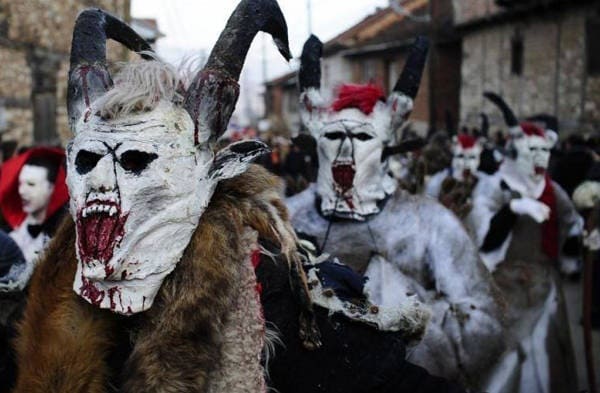
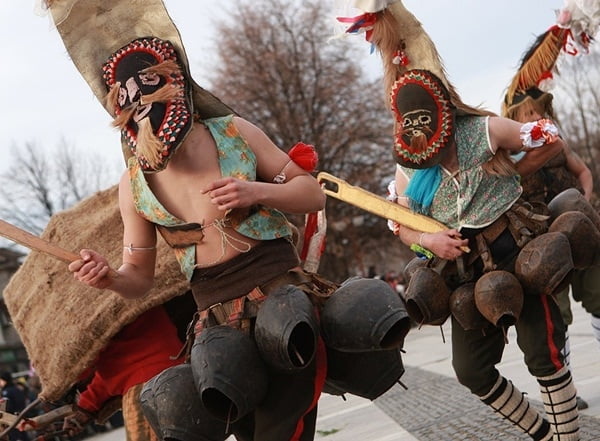
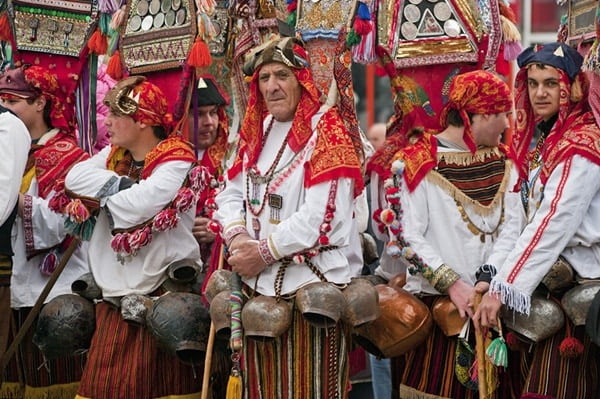
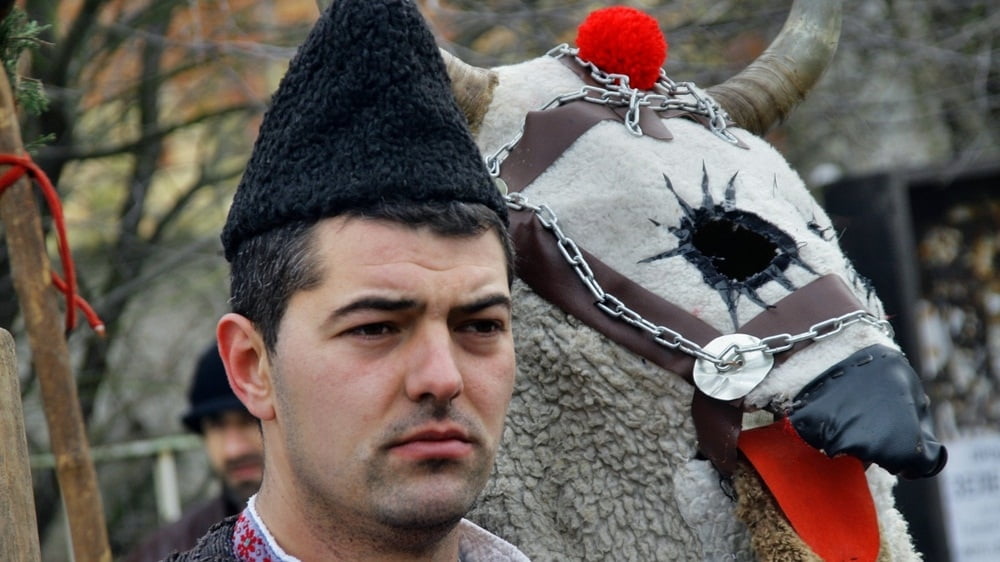
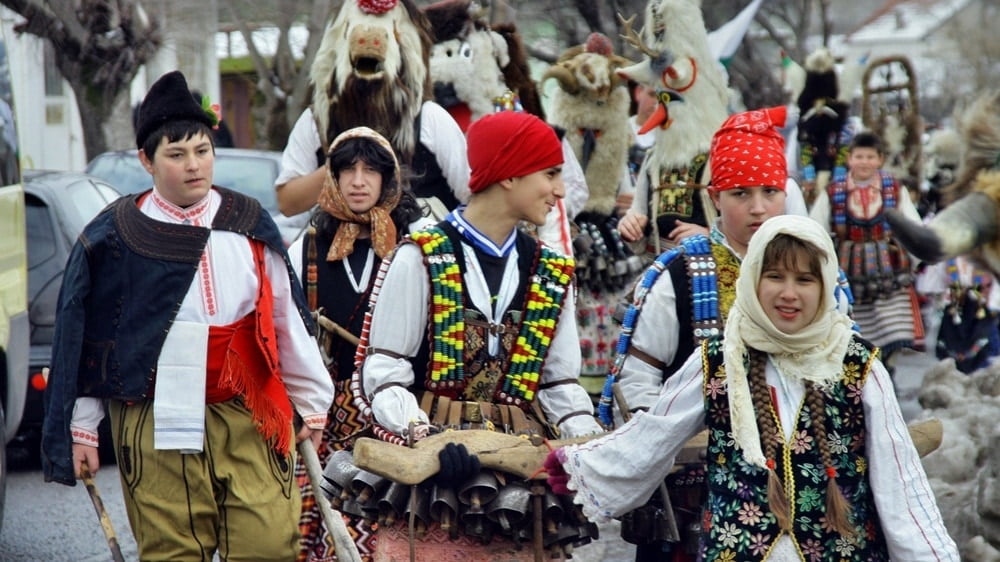
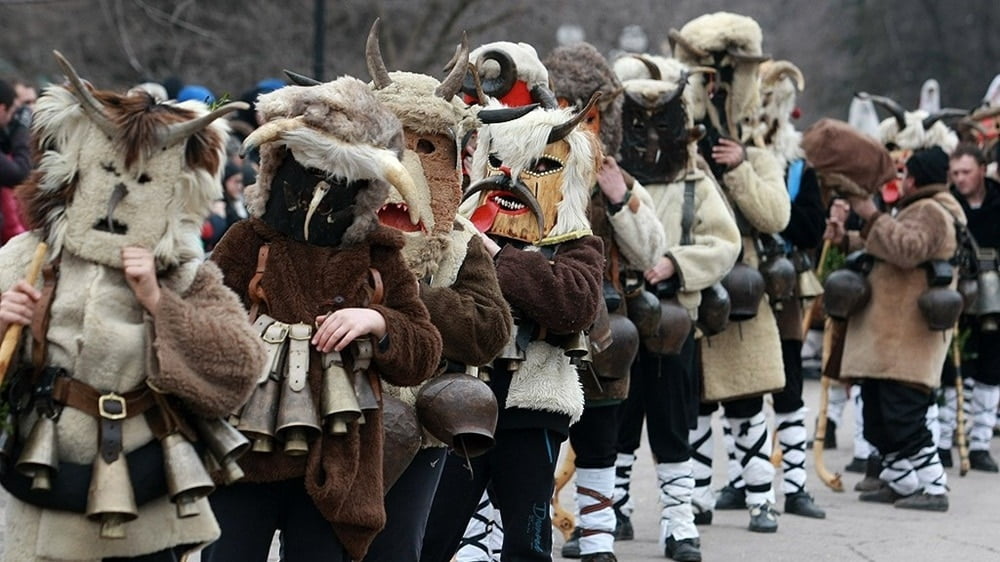
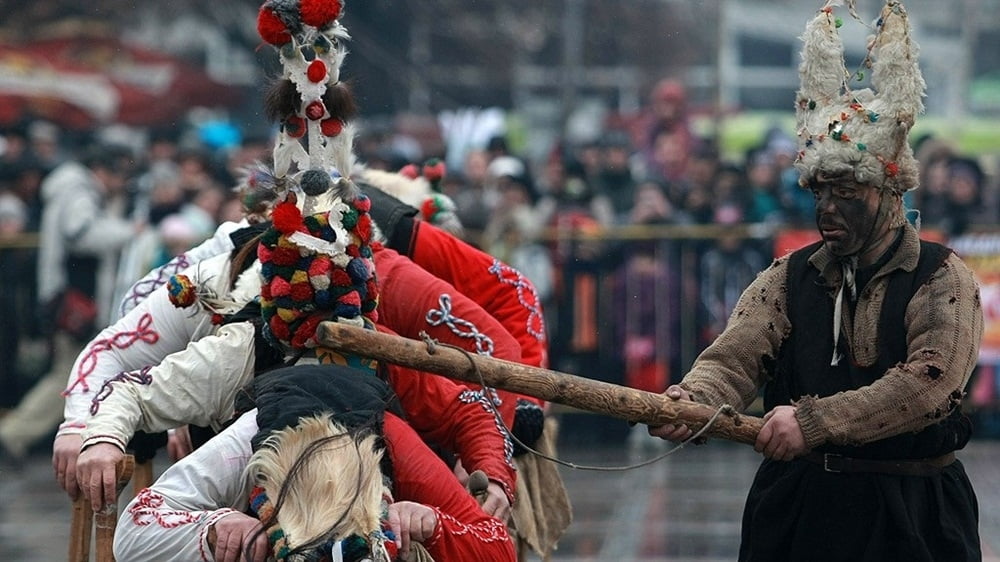
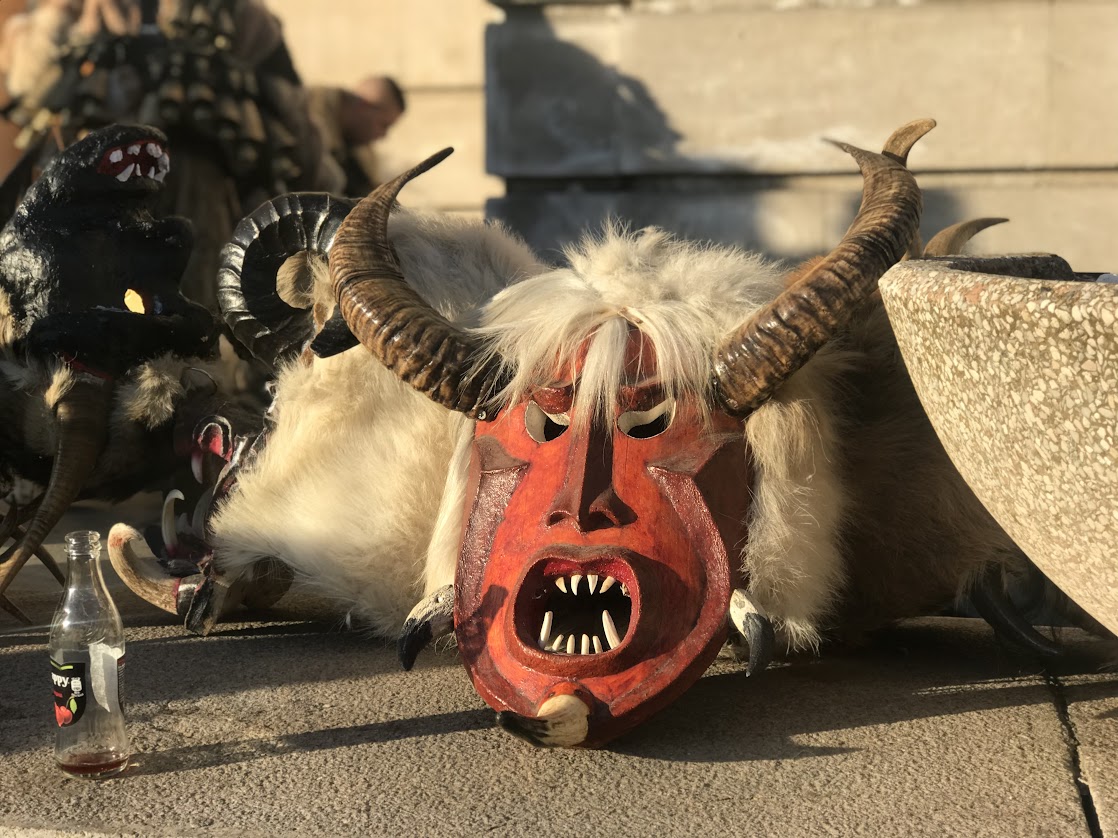
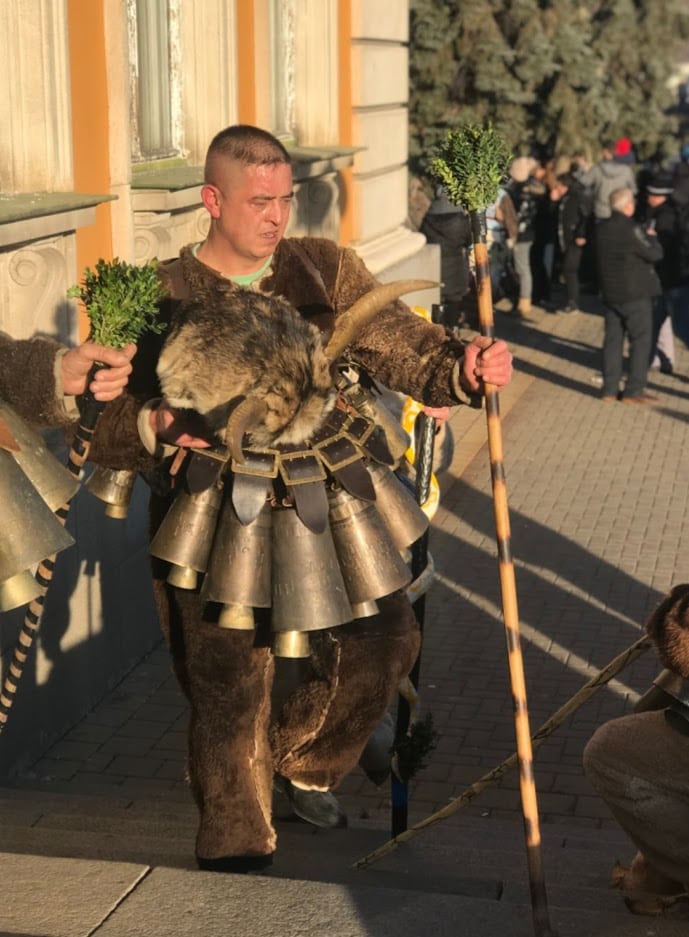
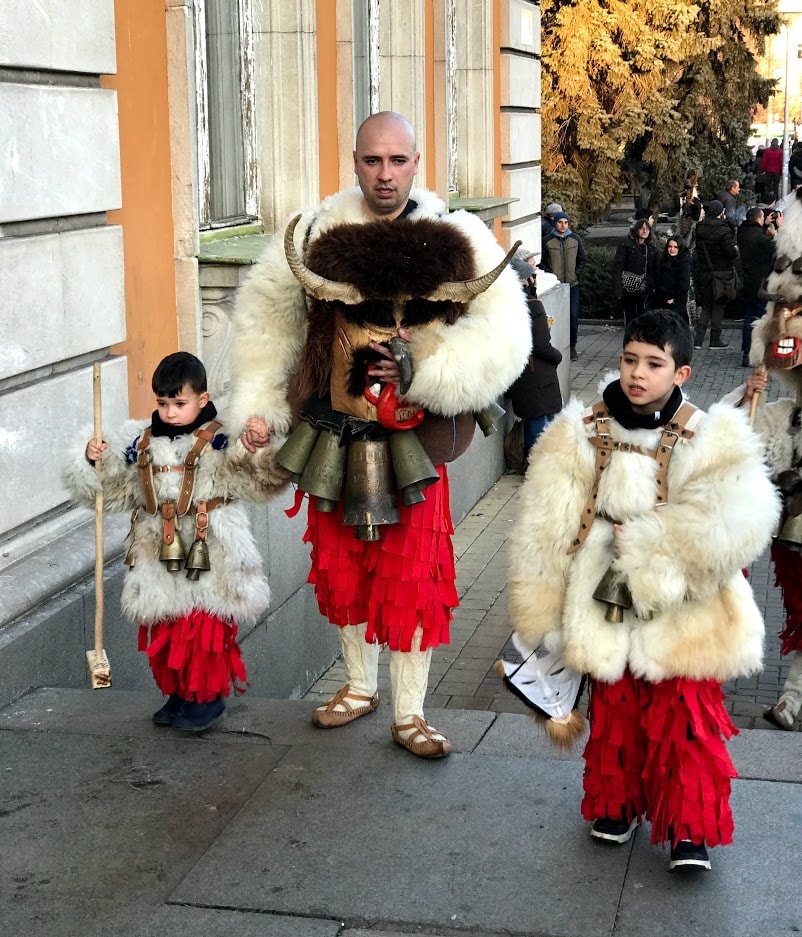
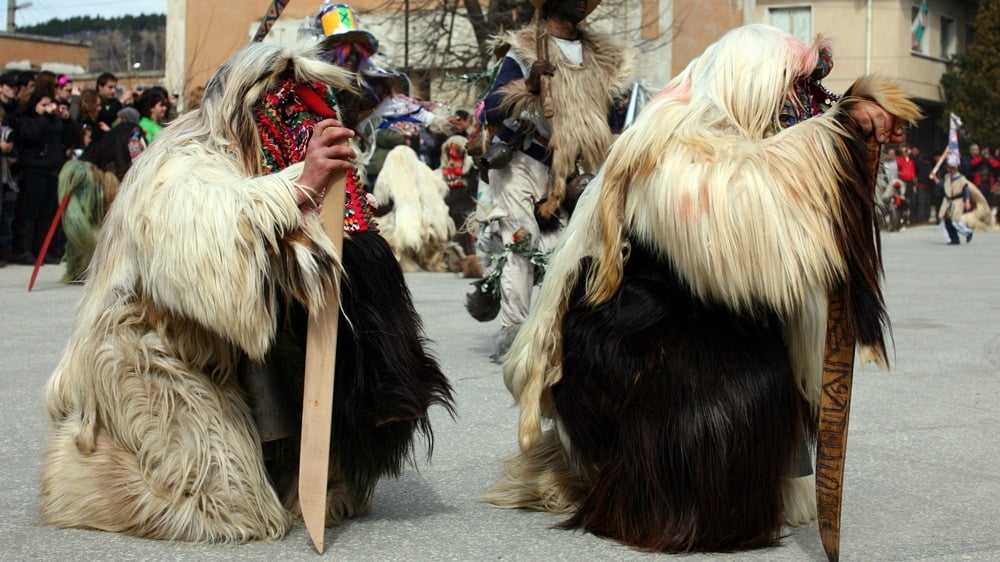
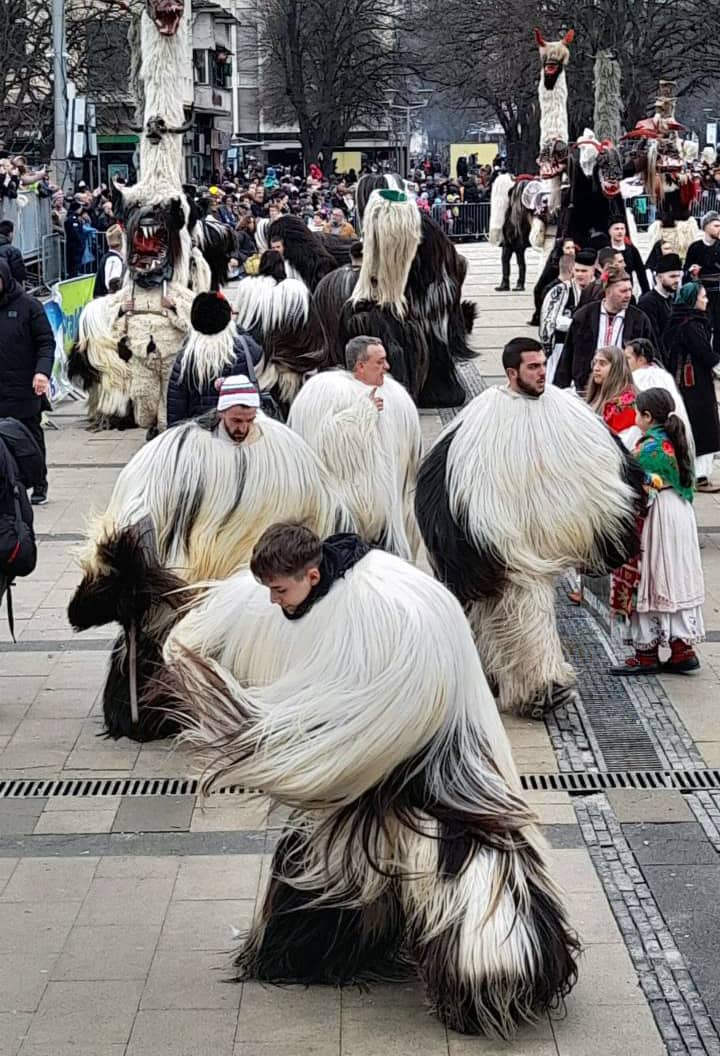
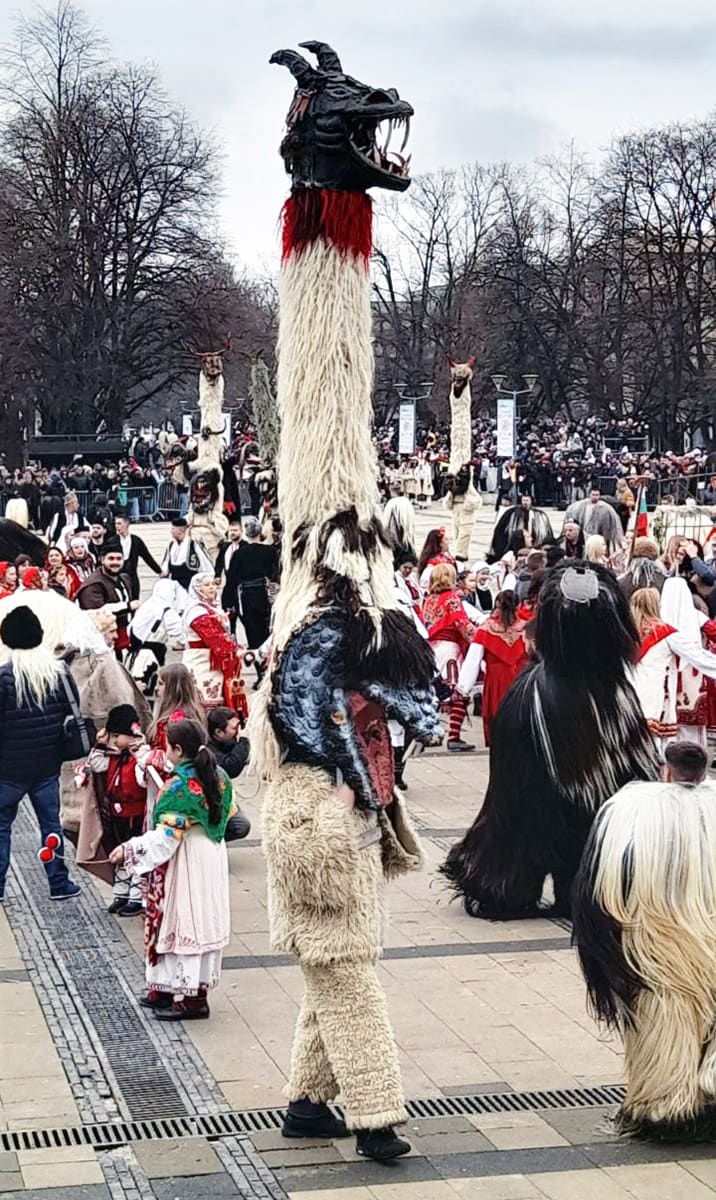
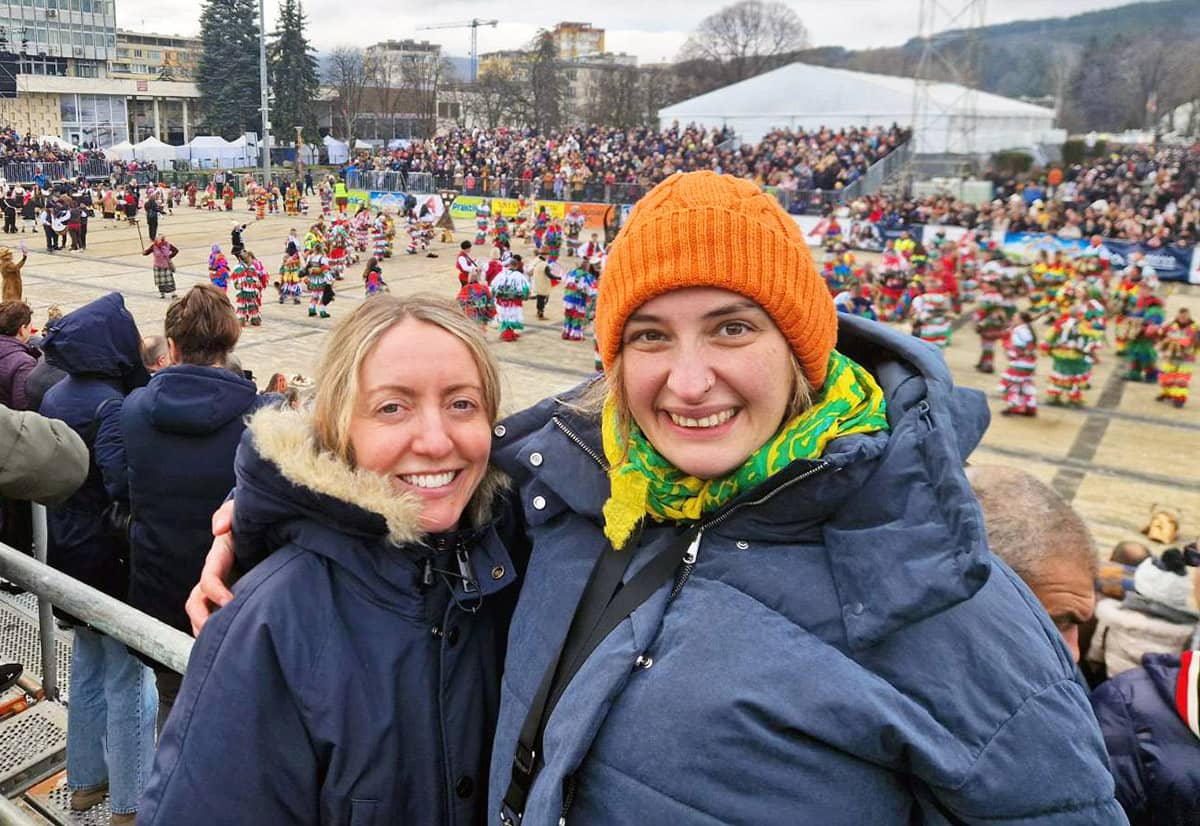
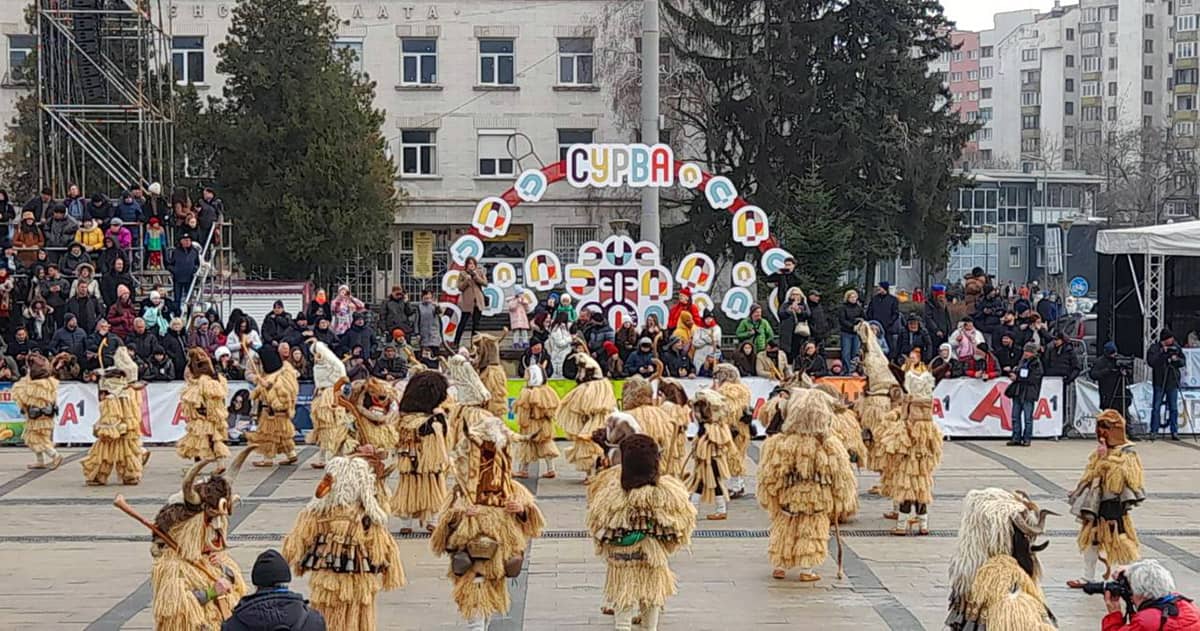
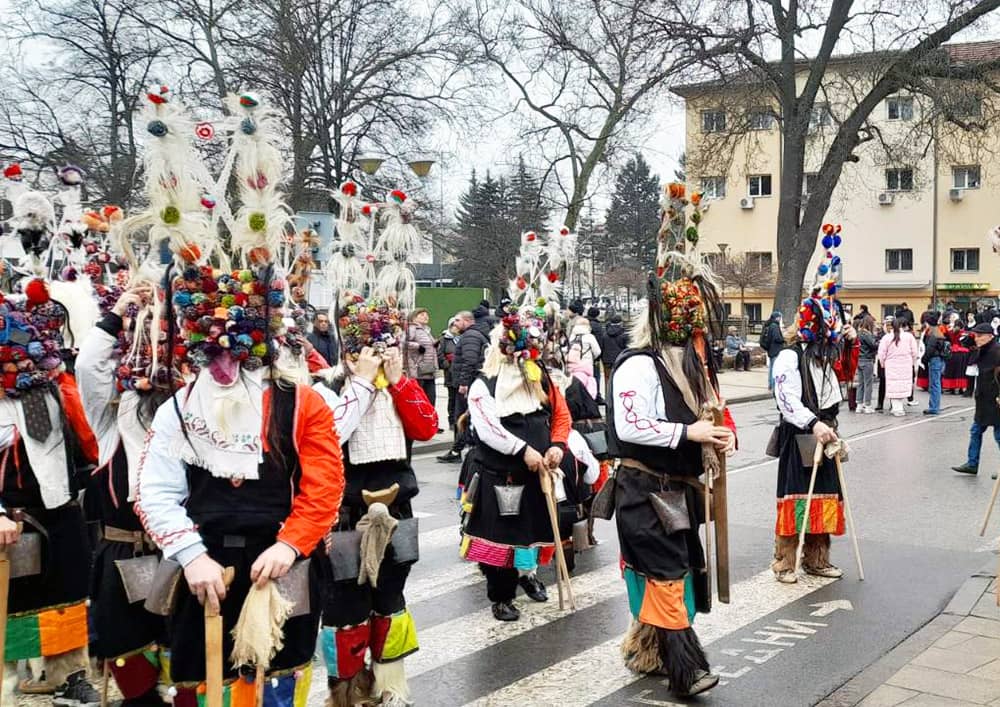
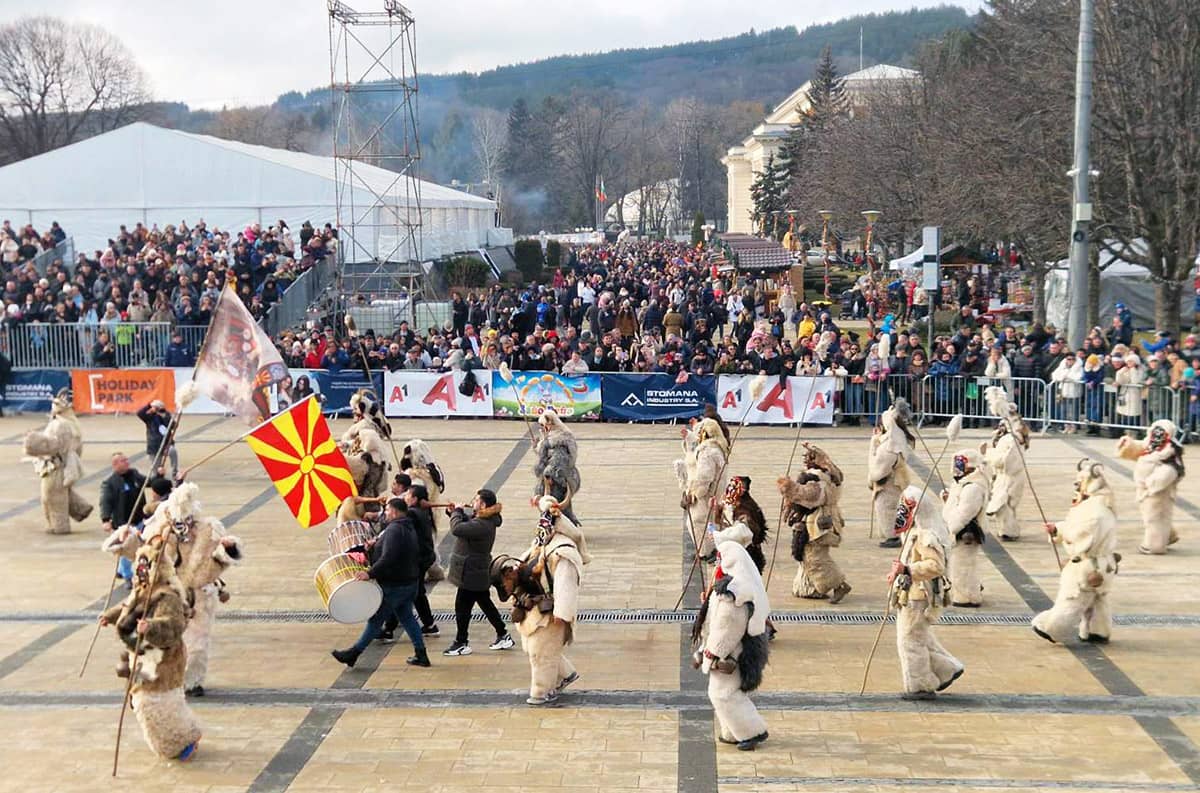
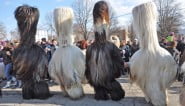
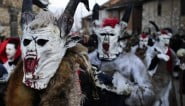
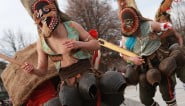
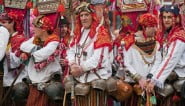
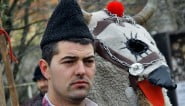
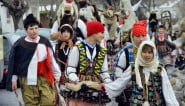
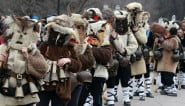
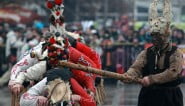
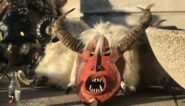
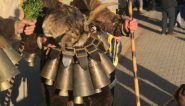
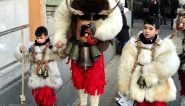
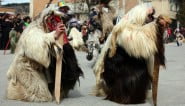
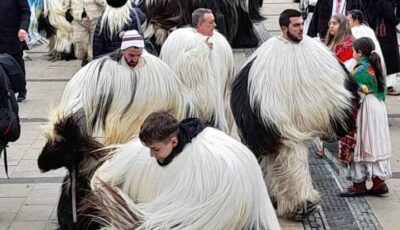
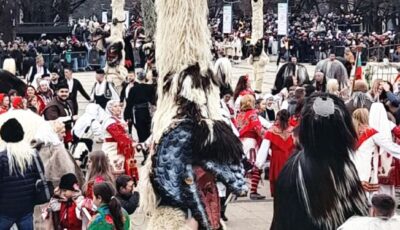
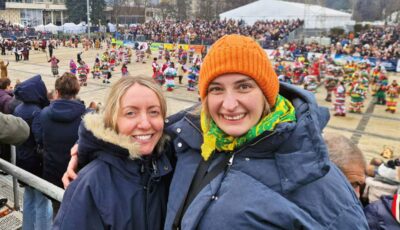
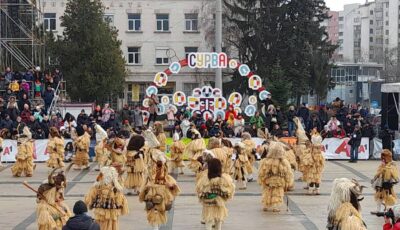
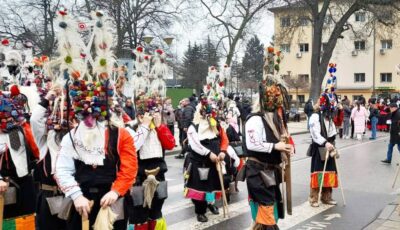
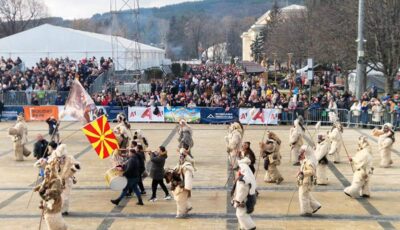
Day Trip Options for the Surva Festival
Private Tours from Sofia to Pernik
| Number of people | Price per Vehicle |
|---|---|
| Up to 3 people | 240 EUR |
| Up to 7 people | 560 EUR |
What’s Included:
- English-speaking private guide;
- Private vehicle (car or minivan) and transport costs included;
- Flexible schedule;
- Pickup at your accommodation;
- Possible add-ons: Boyana Church; Rila Monastery;
Group Tours from Sofia to Pernik
| Number of People | Price per Person |
|---|---|
| 10 to 18 people | 60 EUR |
- English-speaking tour leader;
- Start: 9 am;
- End: 5 pm; (the group leaves Pernik at 5 pm)
- Pickup: Alexander Nevski Cathedral
Note: The group tour will happen if at least 10 people are gathered. If a group has not been formed, we will inform you a week before the trip.
Join the Kukeri Parades
Come with us to the Kukeri Festival ‘Surva 2026’ and you won’t just be watching the event – you’ll get to live it!
Travelers Had a Wonderful Time at Surva with Us
FAQ about Surva Festival 2026
When is the Surva Festival 2026?
The official dates are 16th (Friday) to 25th (Sunday) January, 2026. On the 16th, there will be an official opening ceremony featuring colours, lights, music, and dances. The kukeri parades will be on the weekends of 17th – 18th January and 24th – 25th January.
How to photograph the Surva Festival?
Our local guides know the best angles, less crowded spots, and the timing to capture the show. Get close shots of masks, bells, and dancing. Use fast shutter speeds to freeze motion.
What else to see when visiting the Surva Festival in Pernik?
You can combine it with visits to Sofia (the nearby capital), Plovdiv (ancient and cultural), and Rila Monastery (majestic mountain monastery). These places offer history and culture outside of the festival.
Is the Surva Festival worth visiting with a family?
Yes. Kids often love the colours, masks, music, and dancing. Tips: pick a less crowded day, bring ear protection for small children, and plan breaks. Family-friendly activities include watching the parades, exploring nearby museums, trying local food, and seeing costume exhibits.
Where to stay in Pernik during the Kukeri parade?
We’ve created a map with accommodations in Pernik, if you prefer to stay in the town for the whole celebration. Be quick in booking, though, because the town is crowded with many spectators during the Surva festival.
Disclaimer: The links in the map are affiliate links, which means we might earn a small commission if you book through them, at no extra cost to you.
More about the Kukeri Traditions in Bulgaria
What is Kukeri?
Kukeri is a word thought to be derived from Latin, from the word for “hood”. In Bulgaria, it is used for men who perform rituals during Kukeri festivals in Bulgaria to ward off evil spirits, and their attire is especially picturesque.
What is the meaning behind Kukeri masks and costumes?
Kukeri wear animal masks, made of wood or fur, with horns; some of the masks are even double-faced, to symbolize good and evil. They are mostly masks of rams, goats, and bulls, and can be adorned with colorful pieces of cloth, mirror pieces.
The colors in Kukeri’s masks are carefully chosen: red prevails, to remind of the revival in nature, the sun, and nature’s fertility, black is added to symbolize earth, and white stands for light and water.
Hanging on the kukeri’s waists are large bells, made from copper or brass, which sound as the performers of the ritual do their dancing.
What is the difference between Krampus and Kukeri?
Krampus is a figure from Central European, especially Alpine, folklore—part devil, part punisher. Kukeri is a Bulgarian tradition aimed more at community rituals to banish evil spirits, ensure fertility, health, and prosperity. Masks and costumes differ in style and symbolism.
What is the origin of Kukeri festivals?
Kukeri traditions have Thracian roots, pre-Christian in origin. The rituals survived through centuries, combining pagan customs with later influences.
Which Balkan winter folk festivals are similar to Kukeri?
Festivals in Romania, Greece, North Macedonia, and Serbia have similar masked and bell-ringing traditions. For example, Romania has “mascați” rituals, and in North Macedonia there are “Babari” or mummer-like festivals.
When are Kukeri festivals held?
They usually happen in winter, between the New Year and Lent. Initially, the dances performed by Kukeri took place at night to avoid being caught by the sun’s rays. But nowadays, the masked rituals happen during the day, so more spectators can participate in this Bulgarian folk ritual.
Where to see Kukeri in Bulgaria?
Top places are Pernik (for Surva: 16th to 25th January, 2026), Razlog, Kukerlandia in Yambol (19th to 22nd February, 2026), and Shiroka Laka. Many villages also hold local versions.
